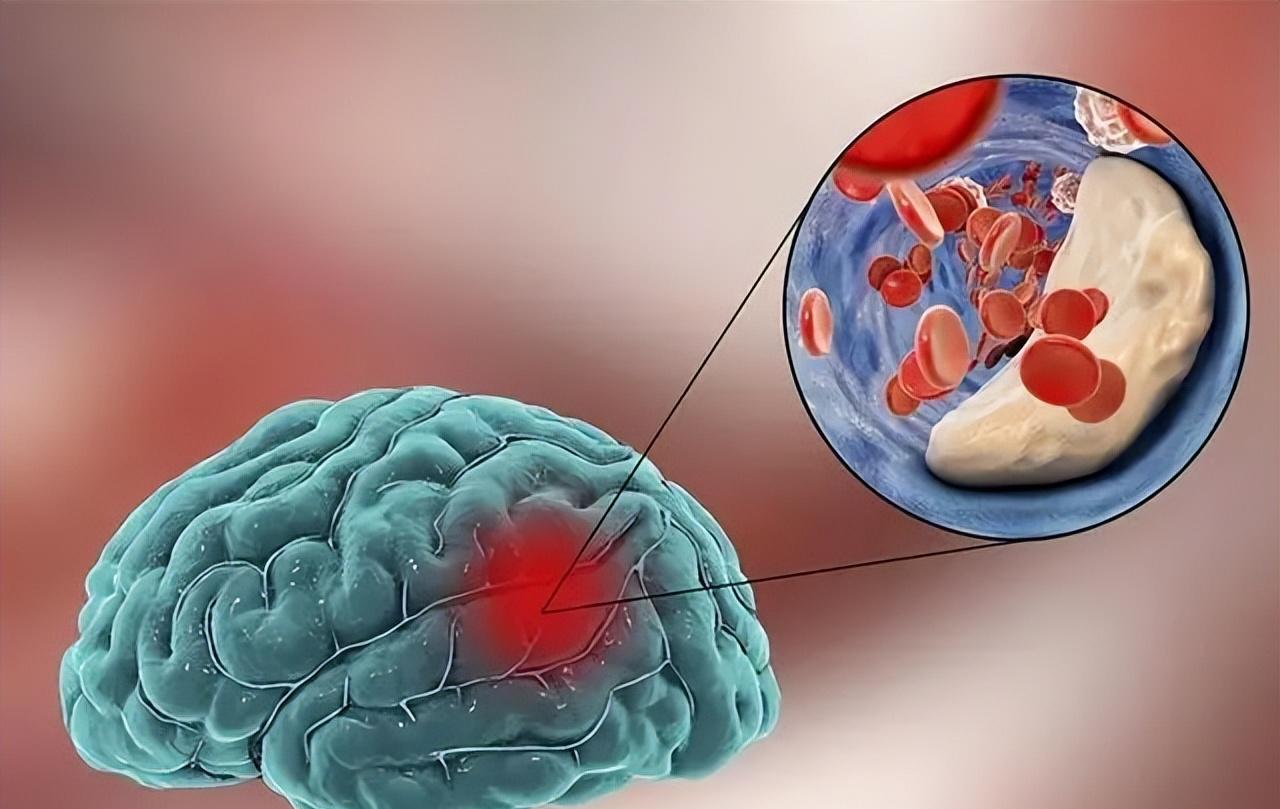Cerebral infarction, also known as ischemic stroke, refers to various cerebrovascular lesions that lead to blood supply disorders in the brain, resulting in local ischemia-hypoxic necrosis of brain tissue.

According to the data, the fatality rate of cerebral infarction occupies the first place in almost all diseases, and some people even call it an "invisible killer" that endangers human health.
According to clinical data, in addition to the high fatality rate of cerebral infarction, there is also a high disability rate, and some patients with mild cerebral infarction have survived, but they will still be paralyzed, aphasia or blindness. Especially in the middle-aged and elderly population, once the disease occurs, the situation is very dangerous, and it is easy to cause irreparable consequences if the rescue is not timely.
Although the cerebral infarction is very harmful, but before the onset of cerebral infarction, the body has some common signs, if it can be found in time and paid attention to, so that early prevention and early treatment, the disease can be controlled in the bud.
In fact, in the initial stage of cerebral infarction, people are often not easy to detect, once found, often have missed the best rescue time.
To do a good job in the prevention of cerebral infarction, we must pay attention to the 5 signals transmitted by the body.
1. Dizziness
Dizziness is one of the initial symptoms of cerebral infarction, severe blockage of cerebral arteries or worsening of arteriosclerosis, insufficient blood and oxygen supply to brain tissue, dizziness will occur.
In addition to drunkenness, colds, fevers and other reasons, if there is a light-headed, blackened eyes when sitting up, the sky is spinning, you should immediately undergo a brain CT examination.
2. Significant loss of vision
Most middle-aged and elderly people generally have the problem of vision loss, which is due to the deterioration of vision and the formation of presbyopia, which is a normal phenomenon.
If the vision is very good before, the vision is seriously reduced in the short term, it is likely that the blood vessels in the brain compress the optic nerve, resulting in insufficient blood supply to the retina, there will be a sharp decline in vision, generally there will be blurred vision, ghosting, visual field defects, etc., and even temporary blindness or even permanent loss of vision will occur.
3. Frequent nausea and vomiting
Cerebral infarction can cause cerebral edema, resulting in increased intracranial pressure, blockage of blood vessels, cerebral blood vessels like balloons become larger, compressing the vomiting center, causing a series of symptoms of nausea and vomiting.
In addition, cerebral edema can also cause discomfort in the gastrointestinal tract, and there will be frequent nausea and nausea.
Exclude nausea and vomiting due to gastrointestinal problems, and if this occurs, you should go to the hospital for examination in time.
4. Stiffness at the base of the tongue
Middle-aged and elderly people with stiff tongue roots should be highly vigilant against the risk of cerebral infarction.
Arteriosclerosis and increased blood viscosity are the main causes of cerebral infarction, and the increase in vascular sclerosis and blood viscosity will slow down blood flow, poor circulation of the tongue veins, and long-term accumulation of metabolic substances in the body, thereby stimulating the tongue nerves. Patients often feel stiffness on the tip of the tongue, swelling of the tongue, affecting eating, and in severe cases, language disorders.
5. Unilateral drooling
If the saliva of the middle-aged and elderly people flows to the side, do not take it lightly, and need to pay attention to it at any time.
Cerebral infarction can cause local muscle dysfunction in the pharyngeal cavity, causing pharyngeal and swallowing dysfunction. When the body loses active control of the muscles in sleep, saliva will flow out involuntarily.
Insist on doing 3 things every day to prevent cerebral infarction scientifically
1. Drink plenty of water
Drinking more water helps to promote blood circulation and reduce the accumulation of lipids in blood vessels, adults drink normal water intake per day is 1.5L, but the reality is that many people often do not have enough water intake every day, and only when they are thirsty will they remember to drink water.
- Control salt intake
Hypertension is also a major factor that causes vasospasm and induces cerebral infarction, prevent cerebral infarction, and control salt intake daily, and eat less high-salt foods such as pickles, ham, and bacon.
3. Quit smoking and alcohol
Alcohol can cause irritation to blood vessels, and people who drink alcohol regularly are prone to vascular damage, inducing vascular lesions and increasing the risk of cerebral infarction.
Smoking is the "booster" of cerebral infarction, which will accelerate the occurrence of cerebral infarction, studies have shown that cigarettes contain more than 3,000 kinds of harmful substances, which will cause atherosclerosis of blood vessels, induce vascular lesions, cause blood vessel blockage, and increase the risk of cerebral infarction.